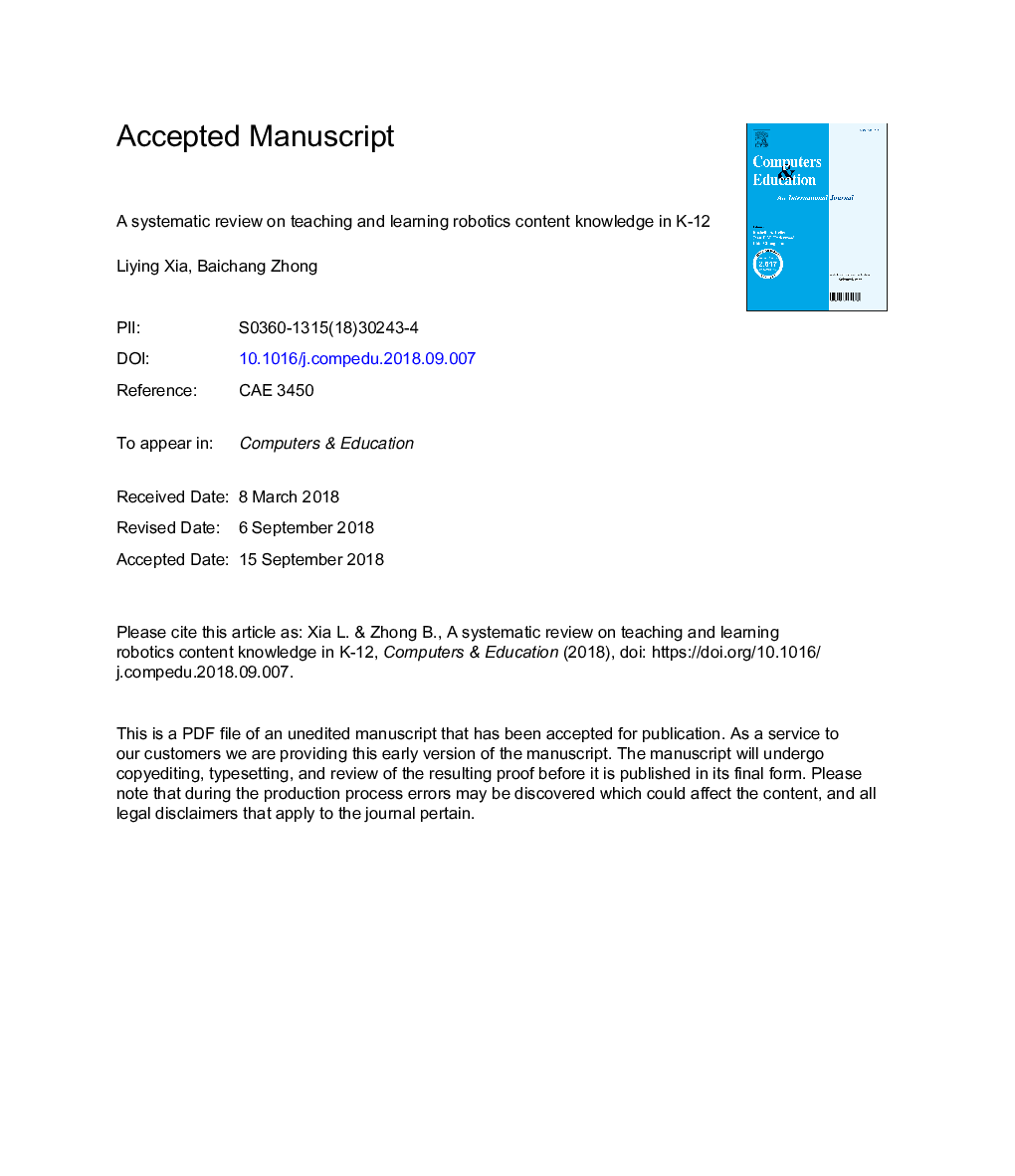| Article ID | Journal | Published Year | Pages | File Type |
|---|---|---|---|---|
| 11032943 | Computers & Education | 2018 | 26 Pages |
Abstract
This paper aims to review high-qualified empirical studies on teaching and learning robotics content knowledge in K-12 and explore future research perspectives of robotics education (RE) based on the reviewed papers. After a systematic search in online database via keyword search and snowballing approach, 22 SSCI journal papers are included in this review. Nine major factors are examined for each paper: sample groups, duration, robot types, robotics content knowledge, study type, intervention approaches, measurement instruments, major findings and instructional suggestions. The results indicate that: (1) most empirical studies were endured less than two months with a small sample size, the largest sample group was elementary school students, and most studies used LEGO robots; (2) more than half of the studies conducted a non-experimental research design, and observation, questionnaire, interview and evaluation of artifacts are commonly-used measurement instruments; and (3) instructional suggestions proposed in the 22 papers can be clustered into four themes: open environment, targeted design, appropriate pedagogy and timely support. Overall, the 22 papers suggest that RE shows great educational potential in K-12, however, there are indeed situations in which RE did not bring significant improvement in student learning. In view of this, we prospect the future research directions of RE and propose that more intervention studies with rigorous research design could be conducted in K-12.
Keywords
Related Topics
Social Sciences and Humanities
Social Sciences
Education
Authors
Liying Xia, Baichang Zhong,
